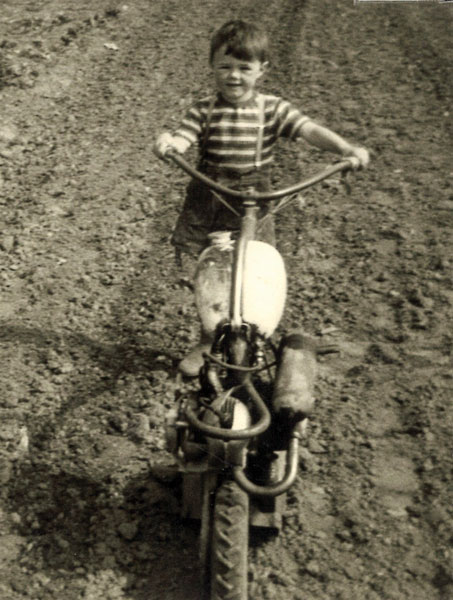6/1/2020
Last Chance to Learn
Albert Grimm

I learned how to pull weeds when I was 7 years old. My family was poor and the choices were simple: If I wanted to eat I could either help in the vegetable garden or I could look after the meat rabbits, which we raised behind the garden shed. As soon as I was tall enough to hold a hoe, I learned how to use one. Today, most young horticulturists would be challenged to identify a garden hoe, never mind explaining the precise purpose of the various incarnations of this tool.
The experience of growing up in a veritable “kinder”-garden came in handy when I started my first job with a market-garden grower. We farmed and sold several acres worth of high-value food crops. Most of you might not even recognize some of our vegetables anymore because they were crops that didn’t lend themselves to mass production. Our core business, however, was vegetable transplants, which we grew and sold in huge numbers to homeowners that needed starter material for their gardens. In those days, cut flowers and bedding plants were mostly an afterthought for many of our customers. While they were out shopping, they picked up the odd plant to make the borders look nice, but food came first.
Pictured: The author takes his first steps behind a single-wheel rototiller.
The “Great Disruption” of 2020 holds something of a déjà vu for me. Suddenly, garden vegetables are a hot item again and I suspect that many first-time greenthumbers will find out the hard way that growing carrots is not as simple as Google might make you believe. There’s a rather steep learning curve attached to even the most common vegetables.
Today, we’re facing a huge generational knowledge gap. Scarcity and hunger required that our parents and grandparents learned from their parents how to grow food. Then came the green revolution and the prospect of famine all but disappeared from the horizon of our industrial societies. The capacity for self-reliance faded away along with our food-awareness. There are still some among us who remember the victory gardens of the late ’40s, but they’re now too old to do garden work and teach young prospective gardeners. Some Europeans of my age group may still remember homegrown vegetables from childhood.
For anybody born after 1970, though, vegetable gardens represent a niche interest inspired by back-to-nature lifestyle choice, not by the need to produce harvests large enough to make a tangible difference in kitchen pantries. We’ve become so pampered with an abundance of readily available food that we take our farm-to-table supply chain for granted with frightening naiveté.
If our industry would pay attention, we would recognize the threat that this knowledge gap poses. Basic horticultural expertise, such as the process of growing a viable crop of carrots, has all but disappeared from the curriculum of horticulture schools and from the repertoire of professionals entering our industry. The broad know-how of our grandparents allowed our nations to feed themselves during times of crisis, but this generalist skillset has been replaced by narrow, application-specific and task-oriented job training. There’s little interest in traditional methods that are as laborious as they are effective. Small-scale food production no longer fits our industrial mindset.
I’ll give you just one example for illustration: How many readers still know what a true hotbed is, how it can be prepared and why it works? Hint: It involves the use of fermenting fresh manure, a spade and a cold-frame, and it allows for frost-free, early season harvest without a heating system. I would have great difficulty to entice any of our hort interns to partake in such smelly, muscle-intensive work. Consequently, any notion that such a method existed will be forgotten once my generation is gone.
The lack of interest in such fundamentals begins to pose a serious challenge for younger growers, especially when there’s the need to adapt to a changing landscape of horticultural work. Decentralized food production is big news this year and our industry specialists should be uniquely qualified as go-to experts and take advantage of opportunities that present themselves. The necessary knowledge, however, is disappearing rapidly along with the people that hold it. The current crisis should be a wake-up call for us to do whatever we can to learn and preserve, before this seemingly mundane expertise is gone for good.
So go out, horticulturists—find a willing teacher and practice planting a victory garden! GT
Albert Grimm is head grower for Jeffery’s Greenhouses in St. Catharines, Ontario, Canada.